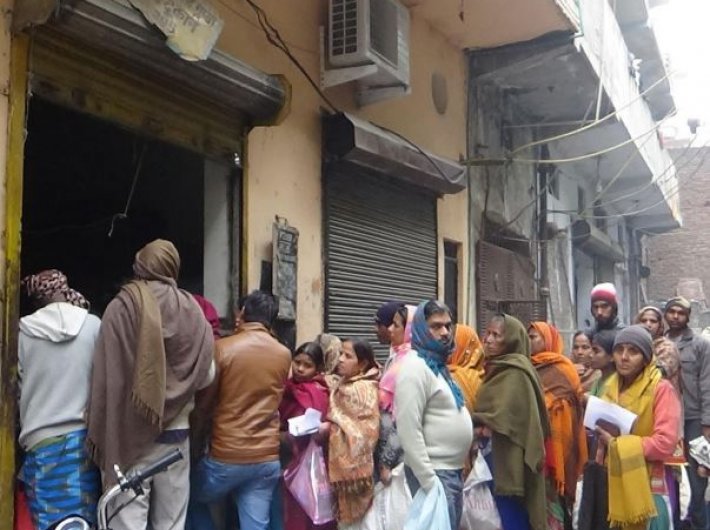Court instructs that no deserving person should be left out of the ambit of food security
A bench of the Delhi high court comprising chief justice Geeta Mittal and justice C Hari Shankar pulled up the Delhi government on its failure to frame rules under the National Food Security Act (NFSA), including those related to transparency, grievance redress and accountability provisions despite passage of more than three years since the enactment of the law.
The court directed the government to frame rules and operationalise all provisions of the law in a time-bound manner to ensure proper functioning of ration shops in Delhi. Rules under the law are required to be framed by the state government, but till date the Delhi government had not framed any rules.
These directions came in an ongoing case filed by the Delhi Rozi Roti Adhikar Abhiyan against Aadhaar being made mandatory for receiving ration under the NFSA.
"The high court said that no deserving and eligible person should be left out of the ambit of food security. Several affidavits were filed by people testifying how either they themselves or members of their family were excluded from the NFSA as they did not possess Aadhaar at the time when ration cards were made," the Delhi Rozi Roti Adhikar Abhiyan said in a press note.
The Delhi Rozi Roti Adhikar Abhiyan informed the court that it had identified many more cases of exclusions of the most marginalised sections of society - homeless, transgenders, residents of slums - due to Aadhaar being a mandatory condition for accessing rations.
In the last hearing, the court had appointed Zoheb Hossain, a senior lawyer, to act as a commissioner of the court and meet with people who are being excluded from food security due to Aadhaar and also visit the shops where Aadhaar enabled point of sale (POS) devices were installed.
The report of the commissioner recorded the problems faced by people due to Aadhaar being made mandatory and also the problems in areas where Aadhaar based biometric authentication through POS device was made mandatory for receiving food entitlements from ration shops.
The commissioner’s report also highlights that Aadhaar in itself cannot resolve all the issues plaguing the public distribution system. When the commissioner visited the ration shops to examine the problems due to POS devices, the shops were found to be closed during working hours. The commissioner had to call up the food department officials in order to get the ration shops to open. The high court noted that poor functioning of ration shops is a key problem which hinders peoples’ ability to access rations.
The Delhi Rozi Roti Adhikar Abhiyan also put before the court its report on ‘peoples’ assessment of the implementation of transparency, grievance redress and accountability measures of the National Food Security Act in Delhi’ which on the basis of physical inspection of 250 shops (10% of all ration shops in Delhi) found that: more than 60% shops were shut during working hours; most shops did not display requisite information of rights of ration cardholders; in many cases shops were selling poor quality of grains, overcharging etc. The report highlights that complaints about non-delivery of ration are wide-spread across low income and marginalised communities in Delhi.
The national food security law provides for mandatory periodic social audits and setting up of state food commission. Till date, no social audit has been undertaken and there is no functional state food commission in Delhi. Further the law also requires appointment of district grievance redressal officers, internal grievance redressal mechanism and transparency of ration related records. These provisions have not been properly implemented in Delhi, said the press note.
The court said that it was inclined to appoint local commissioners to monitor functioning of ration shops in Delhi. There are 2,500 ration shops in Delhi and about 72 lakh people who have been identified as beneficiaries so far. The case is now listed for hearing on September 19.
